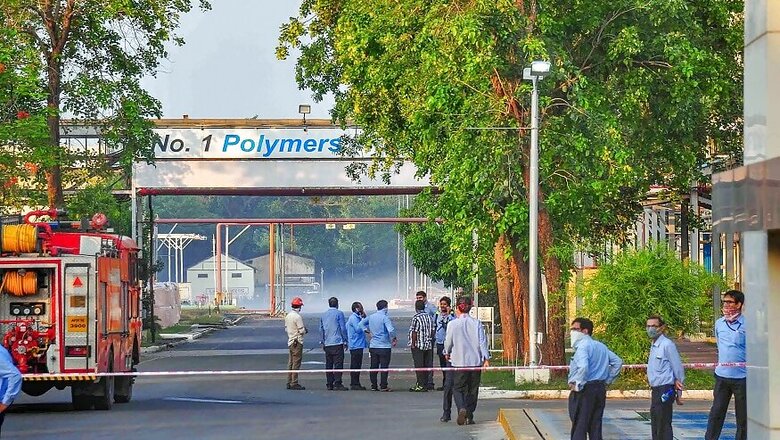
views
New Delhi: The manufacturing unit of LG Polymers Pvt Ltd in Vizag, where a gas leak killed at least 11 people, expanded its operations six times between 2004 and 2018 only on the basis of state pollution control board nod and skipped seeking a green nod from Union environment ministry, the company’s documents, seen by News18.com, show.
In doing so, the company also bypassed the Environment Impact Assessment (EIA) notification, 1994 and 2006, which mandates that modernisation and expansion of existing projects needs an environmental clearance (EC).
Officials from the Union environment ministry confirmed to News18.com that the company had applied for an EC under the ‘violations’ category. This is a special category that the ministry created in 2017 as part of one-time amnesty for projects across various sectors which had not obtained ‘prior environmental clearance’ at the time of commencing work.
A government release on the one-time window had said that this was being done to bring projects and activities in compliance with environmental laws, rather than leaving them unregulated and unchecked.
Officials of the Andhra Pradesh Pollution Control Board did not respond to calls while queries mailed to LG Polymers India Pvt Ltd were not answered at the time of publication of this story. The story will be updated when the company responds.
Speaking on the project application, a senior official of the Union environment ministry said on the condition of anonymity, “The file had come to us just before lockdown in March. We will have to first evaluate the project history. Even if an industry was established prior to the EIA notification, the moment it plans an expansion of modernisation, it has to obtain a fresh environmental clearance.”
Ironically, the Union environment ministry is pushing for post-facto clearances for projects in the revised draft of the EIA notification, 2020 and it has been opposed by environmental activists. The ministry is doing so even as the Supreme Court and National Green Tribunal have disapproved of post-facto clearances in their judgments.
“The concept of an ex post facto EC is in derogation of the fundamental principles of environmental jurisprudence and is an anathema to the EIA notification dated 27 January 1994. The reason why a retrospective EC or an ex post facto clearance is alien to environmental jurisprudence is that before the issuance of an EC, the statutory notification warrants a careful application of mind, besides a study into the likely consequences of a proposed activity on the environment,” a bench of Justice Dhananjaya Y Chandrachud and Justice Ajay Rastogi had ruled in a judgment that came out last month on April 1.
As part of its application seeking an EC from Centre, LG Polymers submitted a sworn affidavit through one of its senior officers in May 2018. In the affidavit, seen by News18.com, PP Chandra Mohan, Director-Operations, stated that consent for operations was obtained for expansions between 2004 and 2018.
The company increased its capacity for production of Polystyrene from 235 tonnes per day (TPD) to 313 TPD in 13 years. The company filed an application for EC in April 2018 before the environment ministry’s amnesty window closed.
In June 2019, after its affidavit was accepted, the State Environment Impact Assessment Authority transferred the application to Centre.
The company has proposed to expand the manufacturing capacity from 415 TPD to 615 TPD in an existing area of 213 acres and the capital cost of the expansion will be Rs 168 crore.
Environmental lawyer Ritwick Dutta said that the state pollution control board is equally responsible for letting the company operate without an environmental clearance.
“First and foremost, projects that are covered under schedule of EIA notification cannot be granted consent to operate and consent to establish before they are granted an EC. The state environment impact assessment bodies and pollution control board is equally liable for this incident,” Dutta said.
Under the Water (Prevention and Control of Pollution) Act, 1974, and The Air (Prevention and Control of Air Pollution) Act, 1981, it is mandatory for any polluting industrial or construction activity to obtain consent to establish and consent to operate.




















Comments
0 comment